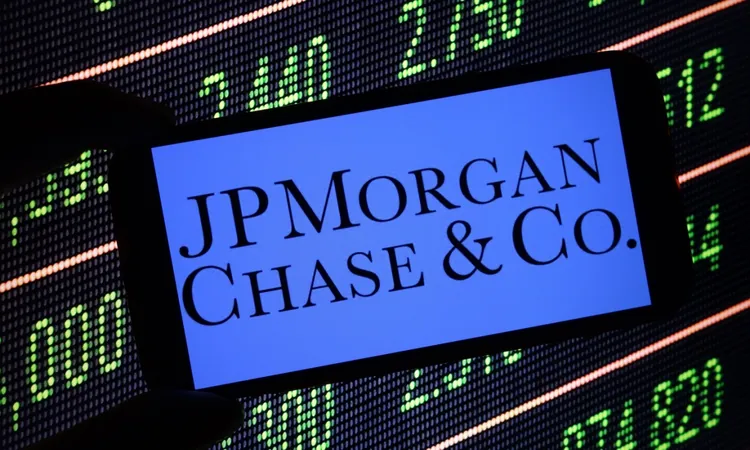
JPMorgan's New Strategy: Charging FinTechs for Consumer Banking Data
2025-07-14
Author: Wai
JPMorgan Triggers Major Shakeup in FinTech Scene
In a bold move that could reshape the financial technology landscape, JPMorgan is reportedly preparing to charge FinTech companies for access to consumer banking data. According to a report from Bloomberg, these new fees, potentially reaching into the hundreds of millions of dollars, pose a significant threat to the core business models of many FinTechs.
New Fees Explained
Sources indicate that JPMorgan has distributed pricing sheets to data aggregators—companies that facilitate the connection between banks and FinTechs—detailing these impending charges. The fees will vary based on how FinTechs utilize consumer data, particularly applying heftier charges to payment-focused platforms.
Impact on Consumers and FinTechs
This change could mean that the new fees, initially assessed on the data aggregators, will likely be passed down to FinTech companies and, eventually, to consumers themselves. Popular platforms like Coinbase, Venmo, and Robinhood, which depend on access to users' bank accounts, will face formidable challenges if these charges come to fruition.
JPMorgan's Stance on Data Security
A spokesperson for JPMorgan emphasized the bank's commitment to consumer data protection, stating, "We’ve had productive conversations and are working with the entire ecosystem to ensure we’re all making the necessary investments in the infrastructure that keeps our customers safe.”
The Uncertain Future of Open Banking
This development unfolds amid the precarious future of Section 1033, a part of the open banking rule finalized by the Consumer Financial Protection Bureau (CFPB) last year. This rule allows consumers to access their own financial data and mandates that banks share it with other financial service providers at no cost. While supporters tout it as a means to enhance customer choice and data security, opponents in the banking industry warn of potential fraud and increased liability.
A Market Ready for Change?
As the Republican administration seeks to challenge this rule in court, questions loom over the future of open banking in the U.S. Research shows that while 46% of consumers would eagerly embrace open banking for payments and financial services, only about 10% have actually utilized these options, revealing a vast, untapped market.
The road ahead for FinTechs could be daunting, with challenges surrounding regulatory framework and consumer trust. Instant payment solutions are emerging as a critical component of the open banking landscape, essential for both consumer-facing and B2B applications. This regulatory uncertainty presents both a challenge and an opportunity that could define the future of financial services in America.



 Brasil (PT)
Brasil (PT)
 Canada (EN)
Canada (EN)
 Chile (ES)
Chile (ES)
 Česko (CS)
Česko (CS)
 대한민국 (KO)
대한민국 (KO)
 España (ES)
España (ES)
 France (FR)
France (FR)
 Hong Kong (EN)
Hong Kong (EN)
 Italia (IT)
Italia (IT)
 日本 (JA)
日本 (JA)
 Magyarország (HU)
Magyarország (HU)
 Norge (NO)
Norge (NO)
 Polska (PL)
Polska (PL)
 Schweiz (DE)
Schweiz (DE)
 Singapore (EN)
Singapore (EN)
 Sverige (SV)
Sverige (SV)
 Suomi (FI)
Suomi (FI)
 Türkiye (TR)
Türkiye (TR)
 الإمارات العربية المتحدة (AR)
الإمارات العربية المتحدة (AR)